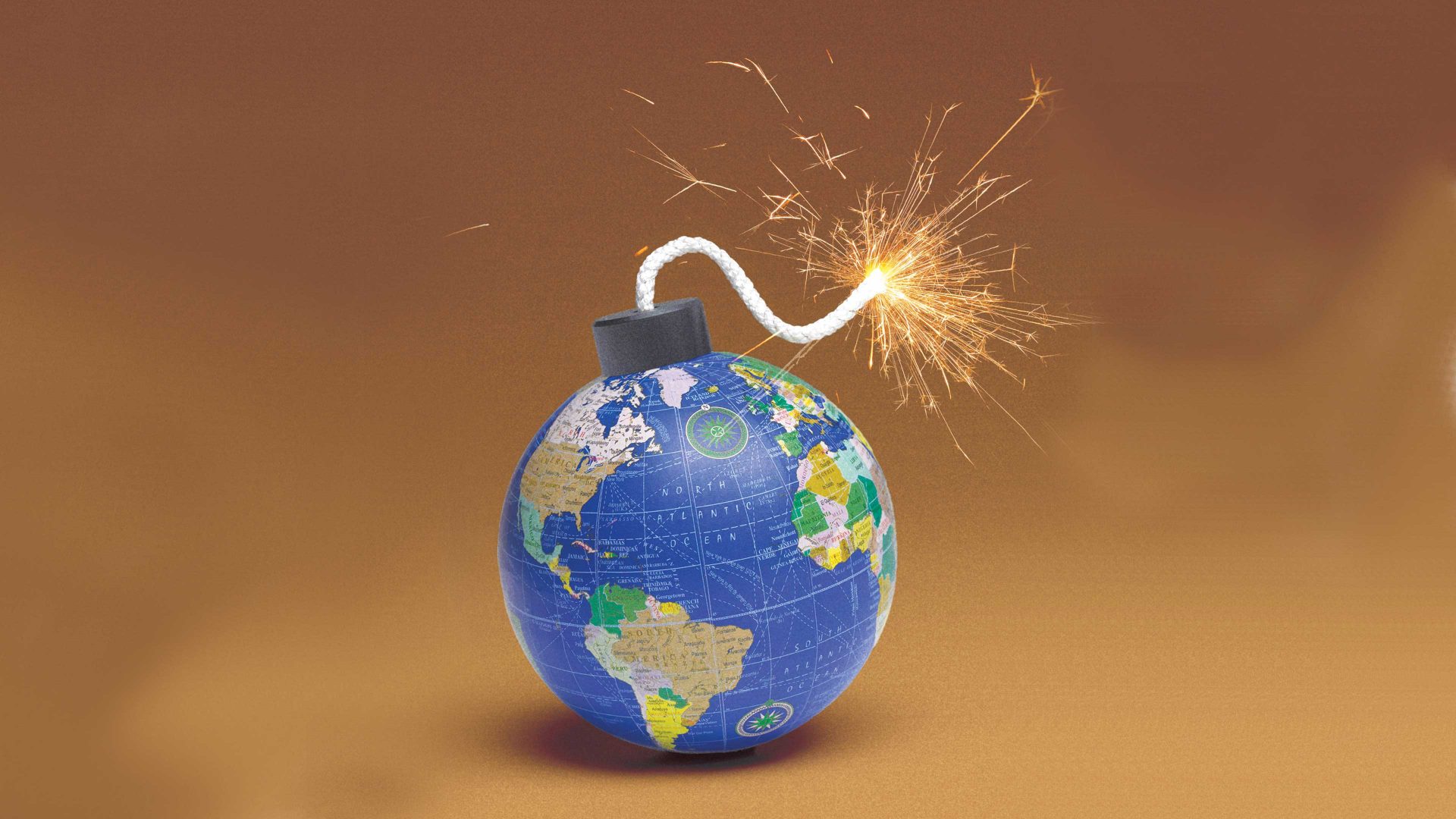For many of the most depressing years during which scientists were trying to sound the alarm on climate change, there was one thought that brought some comfort – we generally believed people would act when they started to see the climate change around them, and we thought that this would be in time to avoid the worst of the damage.
Both of these propositions now seem to be in doubt. The Earth’s climate is indisputably more dangerous and chaotic than it has ever been in living memory – suggesting we may have less time to stop catastrophic change than we believed – and yet there is still an army of people out there to say everything is fine.
Wherever you look the signals are alarming. The evacuation of tourists from wildfires in Rhodes was described by a Tory minister as “undoubtedly a wake-up call” on climate change. Southern Europe is enduring an unprecedented and deadly heatwave. New York City’s residents had the worst wildfire smog they have had in decades. The world recorded its overall hottest day on the Earth’s surface four times in four days.
Arctic sea ice, meanwhile, is so low that the probability of that being just the result of random chance (regular fluctuations in the weather etc) is “five sigma” – a statistical measure used by scientists to indicate an extraordinarily high level of confidence in their conclusion. Researchers at Cern insisted on that same measure of certainty before announcing the discovery of the Higgs Boson, a fundamental particle.
Put simply, climate change is happening now, and the consequences are no longer something for our “children and grandchildren” – we are going to get to experience them ourselves. Some of us are already experiencing them ourselves.
And yet we have MPs, GB News commentators, and people in right wing opinion sections regurgitating hackneyed arguments that the “woke blob” is trying to make a lovely bit of hot weather scary. Meanwhile, we reserve more pages for coverage of the throwing of orange paint than we do for the actual climate. Our discourse feels at most a step away from going back to insisting smoking is actually good for you because it toughens the lungs. I may rapidly come to regret giving people ideas on this front.
Part of the problem surely lies in that the key figures everyone talks about are either “net zero” or keeping overall global warming to either 1.5ºC or 2ºC. “Net zero” is a slightly useless concept – when it’s applied to individual countries we end up in an endless debate about to what extent you can prove you’re not just outsourcing your emissions by moving farming and manufacture overseas. The “net” in the concept also leaves it complex and incalculable to the average person – it’s arguably impossible to accurately measure at all, in practice.
The 1.5ºC or 2ºC warming limit has the benefit of being clearer, but it has a different problem – on the whole, it just doesn’t sound all that important or alarming. We experience a pretty significant range of temperatures over the course of a year – perhaps around 40ºC, from minus 5 or so in the winter (colder still in parts of Scotland) to 35ºC on the hottest day of the year.
If the temperature can vary that much over a year – and on the day I am writing this piece the temperature today alone will vary 10ºC – how much of a big deal can 1.5ºC or 2ºC be? Can 3ºC or 4ºC really be all that much worse?
The thing that made the scale of the danger of global warming clear to me was a conversation around a decade ago with an environmental campaigner with a strong science background.
They noted the importance of thinking about the whole planet when considering temperature. Generally, the thought is that overall things come out as a wash – temperature is essentially a measure for the overall amount of energy in the world’s climate system.
Given the world stays the same distance from the sun (seasons are just about which hemisphere is slightly angled towards the sun), the overall energy received from the sun – the ultimate source of all of our energy – stays roughly the same. One place might be getting dramatically hot, windy, or stormy weather, but another will compensate by being colder, and so on.
What an overall temperature increase means, then, is that there is more energy in the climate system than there used to be – we are trapping more in the system. In 2012, Professor Steve Easterbrook, director of the school of the environment at the University of Toronto, worked out quite how much more.
The number will not mean much at first, but Easterbrook calculated that in 2012, we were adding 300 terawatts of energy into the global climate system every year – and global emissions have only increased since 2012, and are still rising each year.
To put that number in context, the entire power consumption of the human world in 2019 was just under 20 terawatts. Every year we are trapping 15 times as much energy in the atmosphere than the entirety of human society uses – including electricity, gas, petrol, and all other sources of energy.
All of that energy has to go somewhere. That can mean hotter weather, stronger winds, more extreme weather events. It also means much more rain – heat accelerates the rain cycle that we all learn about in school, as water evaporates faster in hot weather. It means that rain patterns, as well as temperature patterns, will change – changing what food crops are viable where.
The energy we are trapping in the atmosphere is the energy that generates our extreme weather – it has to go somewhere, given energy cannot be created or destroyed. The numbers are almost incomprehensible, but Easterbrook had one other go at it when he did his calculations.
Calories are a measure of energy that most of us are familiar with, given that we all know we should take in around 2,000 to 2,500 calories a day. The extra energy humanity is pumping into the atmosphere amounts to 200 quadrillion – that’s 200,000,000,000,000,000 – every single hour. That means that the extra energy going into the atmosphere every hour equates to enough calories to feed every man, woman and child on the planet for 40 years.
The climate bomb is bigger than any nuclear bomb ever could be. We must learn to properly fear it lest we all become death, destroyer of worlds.




